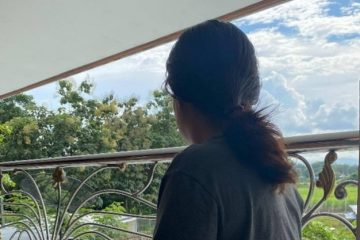Yusuf is a human rights lawyer from a Kurdish city in south-eastern Turkey. He has recently been able to requalify as a human rights lawyer in the UK, thanks to a bursary grant from Prisoners of Conscience.
Growing up in a Kurdish city in Turkey isn’t easy. The ethnic Kurdish minority people have no right to self-determination, they are prohibited from receiving a primary education in their mother tongue and they are frequently subjected to intimidation, torture and killings.
Witnessing major human rights violations and state atrocities against his people and his friends inspired Yusuf to become a human rights lawyer – what he describes as a vitally important job.
“Defending the rights of people who are tortured, killed, raped or forcibly displaced by the government forces and conveying their voices to the national and international public opinion are the most meaningful job one can do,”, he tells Prisoners of Conscience, before adding that this privilege comes with its own costs.
“As a general rule, defending human rights in such countries makes you a target of the government. You might easily be charged, prosecuted and convicted with a variety of reasons. These are the optimistic results which a human rights defender might encounter, even worse, you might be tortured and killed. If you are lucky enough you might find a way to get out of your country and leave everything behind”, he explains.
Information from Human Rights Watch backs this up. Its research shows that human rights lawyers are among over 1,500 lawyers on trial on terrorism charges in Turkey, something it says underscores the dramatic erosion of defendants’ rights and due process in Turkey.
Yusuf knows first-hand exactly how risky it is to be a human rights defender in Turkey. At the end of 2013, he found himself in such danger that he was forced to run. And run fast.
“I suddenly found myself in the UK. I did not plan to leave my country, my family, my friends, my job. It just happened in a few days, I could not even say goodbye to my loved ones,” he reflects.
Adjusting to his new life in the UK was difficult. Not only was he dealing with the emotional trauma of his persecution and missing his family, but he also needed to learn English, find a job and earn money so he could survive, familiarise himself with the culture.
“The first two years were so hard. It is like starting the life from the zero point. It is like you have to create yourself from your ashes and you have to learn everything from beginning,” he says.
Yusuf successfully applied for a grant from Prisoners of Conscience and was able to complete a part-time Master’s Degree on Human Rights at the University of Sussex, and is now taking his Qlts (qualified lawyers transfer scheme) exams which will enable him to become a qualified solicitor.
“It would be so difficult to achieve this without Prisoners of Conscience’s support. This was a huge step for me. It brought back my self-confidence.
“I know my life will never be the same, there will always be something missing in my life but with the solidarity of organisations like yours I will be able to start a new life and adopt myself here. And again, I know that this will reduce my pains emanating from being a refugee. I would like to thank Prisoners of Conscience and your donors very much.”
The Prisoners of Conscience bursary scheme helps prisoners of conscience requalify by providing them with grants to pay for education at all levels, which in turn helps them find meaningful employment. We also offer an Employability Panel to provide specialist career advice. For the academic year 2019/20 we have awarded 13 bursaries to recipients from eight different countries, all of whom who have shown tremendous fortitude, self-sacrifice and courage both in standing up for human rights and for the courage shown in their ambitions to requalify in the UK. You can read more here.
Would you like to help human rights defenders like Yusuf to requalify and rebuild their lives after experiencing trauma and tyranny? Why not make a donation to the Prisoners of Conscience bursary scheme?


